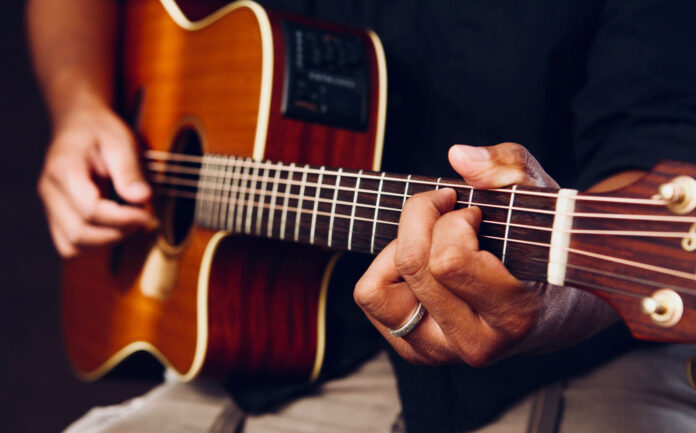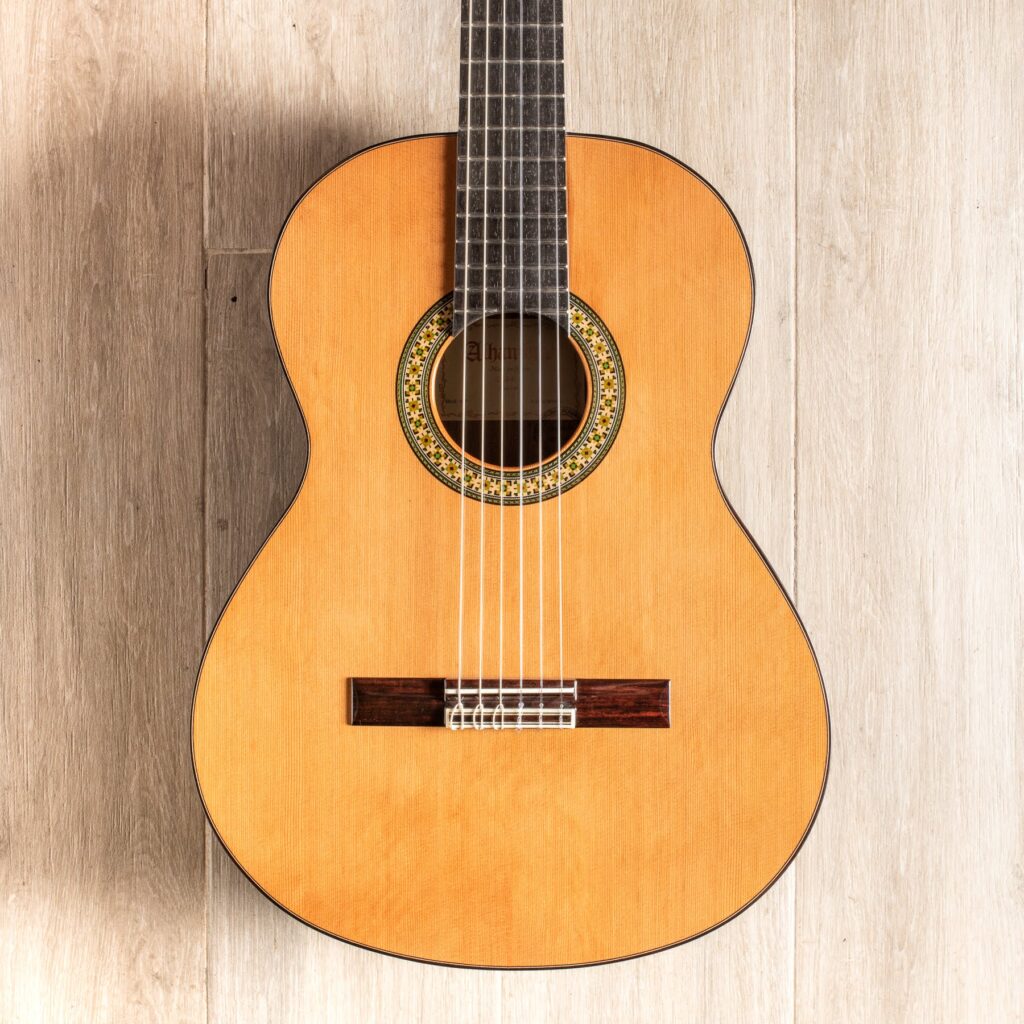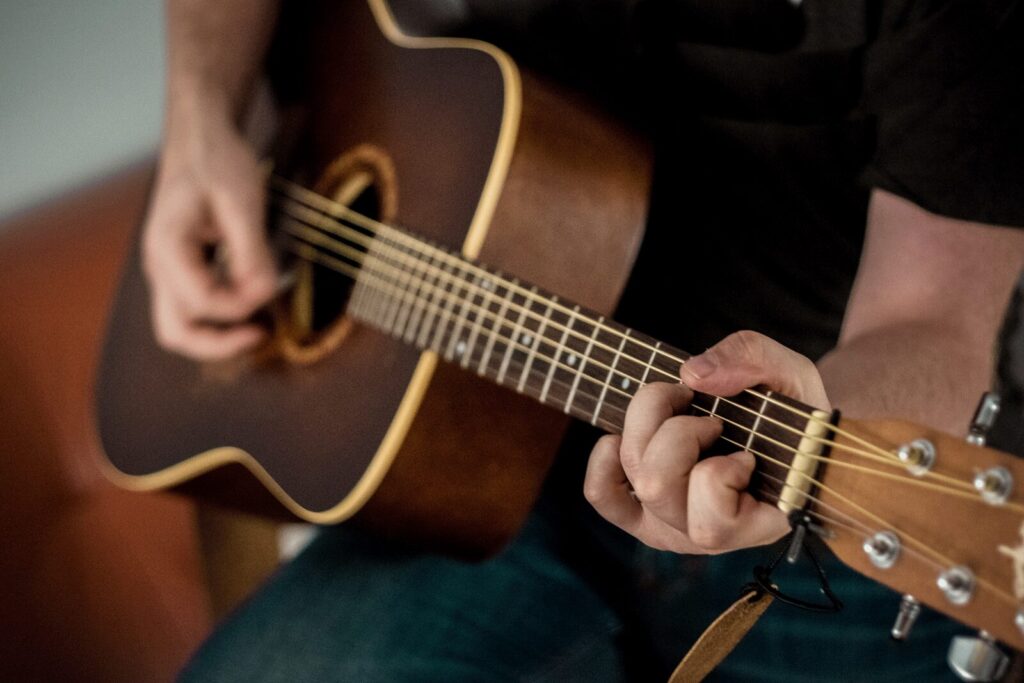
Buying a classical guitar can be difficult and confusing if you don’t know the key things to look for and consider. The process can be made a whole lot easier if you know what makes a good guitar and which classical guitar suits your playing style, your goals and your personal preferences.
There are hundreds of classical guitar models to serve different kinds of players, from those looking for beginner-friendly instruments to those who want something with a specific tone. Finding the guitar that matches you as a player takes a bit of effort involving lots of research, but it will all be worthwhile once you find the best classical guitar that inspires you to play and help you become a better musician.
We’d like to help making the process easier for you, so here we’ll discuss a few key considerations you need to make when choosing a classical guitar.
Goals

Why do you want to buy a classical guitar in the first place? Do you just want to try it out, see if you’ll take a serious liking for it? Are you considering studying music on a deeper level? Whatever your goal is, you should seriously consider it when getting a guitar.
If you just want to try it out first, it’s understandable if you don’t want to spend too much money on a classical guitar. If so, you can check out pre-owned classical guitars or even beginner guitars that come at a pocket-friendly price. There are many shops selling inexpensive used and new instruments for beginners – ask the salesperson what would be a good fit for your goal and budget.
Budget

Speaking of budget, just how much are you willing to spend? The general rule of thumb when it comes to buying guitars is to get the best that you can realistically afford.
There is a saying that goes “you get what you pay for,” and this is often true when it comes to buying musical instruments. What this means is that the higher the price of a guitar, the more you can expect a better-quality build and sound.
What exactly are you paying for? The price of a classical guitar would depend on how it is made (by skilled artisans or luthiers or mass-produced in a factory), materials (tonewoods, tuning machines, strings, etc.), detailing (rosettes, binding, finish) and also where it is made (locally or overseas).
Professionals usually prefer concert-quality classical guitars on the higher end of the price spectrum, because these guitars can better match their advanced techniques and the sound they want to produce. Some even have their guitars customized by luthiers. These premium-quality guitars are usually more resonant and responsive, display excellent workmanship and have a greater dynamic range.
For beginners, there are models that offer exceptional value, classical guitars that perform on a level that’s beyond their price range. Budget guitars may not have the same quality as more expensive models, but many of them are pretty impressive considering their price.
You do need to manage your expectations when going for a guitar from a lower price tier. The quality of workmanship just won’t be the same because some compromises would have to be made to keep the costs down. So, expect to have laminate instead of solid wood for the top, back and sides. You can also expect to see some flaws in the finish, unpolished frets and perhaps some messy glue joints. The action can be a bit too high, the tuners can be flimsy.
While you can adjust the action and upgrade some components, consider the price you’ll be paying for all of these. It may be more cost-effective to simply go for a slightly more expensive yet better model. Which again brings us to the question, “What’s your budget?”
Fortunately there are many websites, like Know Your Instrument, dedicated to ranking classical guitar models from different price tiers; it would be worthwhile to check those out to see which guitars are considered to be of the best quality in their price category.
What’s great about choosing a quality classical guitar right from the start is that when it’s time to upgrade, your old guitar can still be resold at 50 to 70 percent of its original value, even after several years of use. There will always be new players looking for a quality entry-level guitar.
Playability

When you have the time, go to music stores and try out the recommended top models in your price range. This is the best way to see the guitar up close and get a good feel. If you have an experienced friend, bring him or her along to help you judge the construction, intonation, sound quality and playability.
However, keep in mind that individual musicians have different preferences, so the final decision should be really up to you, especially in terms of playing comfort since you’ll be the one using the guitar.
Whichever guitar you choose, you just need to make sure it has a sturdy build and is comfortable to hold and play. Consider the following technical elements that determine playability:
- The angle, thickness and shape of the neck
- The condition of the frets and fretboard
- The string action
- The height of the saddle and adjustment at the nut
- The type of strings and tension
In most cases, playability can be improved with a good setup, which is recommended for all new guitars. There are some factors, however, that you can’t do much about. For example, the neck angle, thickness and shape are all built into the guitar and cannot be adjusted easily with a regular setup.
Guitar comfort and playability can make all the difference. A classical guitar that’s easy and comfortable to play can help you love the instrument more and make practicing a lot more fun, while a guitar with a poor setup can make you discouraged about playing.
Tonal preference

Each classical guitar has its own tonal palette, influenced by its size, the kinds of wood used, the strings and other factors that contribute to the classical guitar tone. Some classical guitars feature a more mellow sound, others lean toward a brighter, sweeter sound. Tonal preference is highly subjective and is based on your own musical interests.
On classical guitars, the top or the soundboard is considered to have the biggest influence on the sound. What it’s made of, how thick it is and the way it’s braced all affect the tone. The most common tonewoods used for guitar soundboards are spruce, cedar, mahogany and maple.
Spruce is considered to be a great all-around tonewood, suited for a variety of playing styles. It’s known to produce a broad dynamic range, with a crisp sound with good clarity. Cedar produces a warmer tone than spruce, but with less clarity at high volume. Mahogany produces a distinctly warm, punchy tone, while maple provides a bright sound and excellent clarity at high frequencies.
There are many other kinds of tonewoods used for guitars. How these woods are combined with other tonewoods (for the back and sides) contribute to the tone of the guitar.
For this reason, it’s important for you to be able to hear the sounds a classical guitar can make and really pay attention to their tonal range. The model you choose should be the one that produces the sound and tone you hear in your head when you imagine yourself playing.
What sounds and feels right to you right now

On your journey to become a musician, you will experience many changes along the way. You will become interested in different playing styles, experiment with various techniques that are different to what you’ve grown accustomed to, develop a liking for a particular genre and so on.
Your skills would be different. It can even be said that in the future, you’ll have changed in many ways – you play with different hands and fingers and hear with different ears. Your tonal preferences will have evolved as well. Keeping this in mind, what kind of guitar should you then choose?
The answer is: the guitar that feels and sounds right to you, right now. There’s no way of knowing the direction you’ll take in the future unless you get started, so focus on taking a step forward first with the guitar that feels the most natural in your hands and sounds perfect to your ears.
When you feel you’ve outgrown your guitar and the sound it makes, then it’s time to find a new partner, one that will encourage and motivate you to expand your repertoire and become a better musician. Enjoy the journey!














